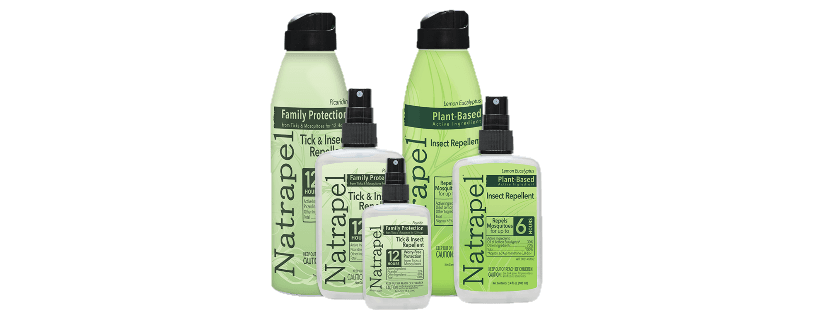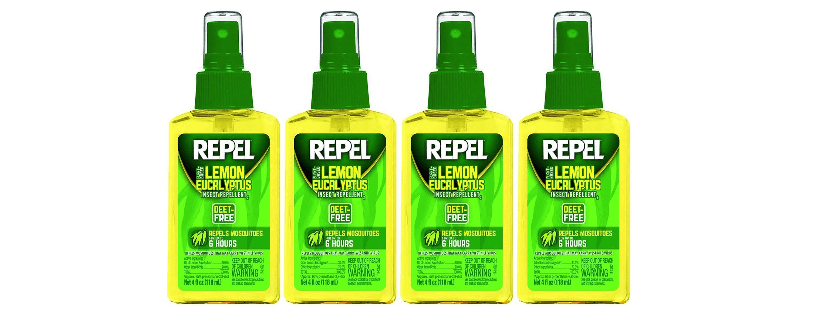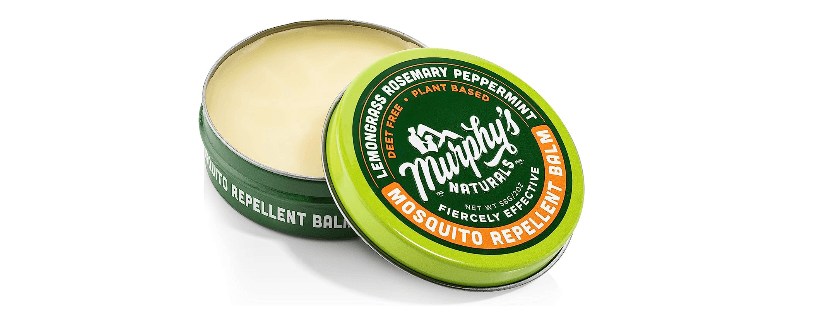Introduction to Eco Friendly Insect Repellents
Insect repellents are essential companions for outdoor enthusiasts, especially during warm seasons when mosquitoes, ticks, and other biting insects are most active. However, traditional repellents often use chemical ingredients that can harm both our health and the environment. Choosing an eco friendly insect repellent offers an effective way to protect yourself while minimizing ecological impact.
This comprehensive guide explores some of the best natural and non-toxic insect repellents on the market, explaining their benefits, ingredients, and environmental considerations. Learn how these products work and why using them contributes to a healthier planet.
Top Eco Friendly Insect Repellent Products Reviewed
Natrapel 8 Hour Insect Repellent

Natrapel provides up to eight hours of mosquito, tick, and insect protection with 20% Picaridin, a synthetic but naturally derived ingredient from pepper plants. Its non-greasy formula is gentle on skin and effective in various outdoor settings.
- Active Ingredient: Picaridin, biodegradable and less harmful to aquatic life than DEET.
- Usage Tips: Apply evenly on exposed skin; suitable for adults and children over two years.
- Skin Safety: Non-irritating with minimal risk of allergic reactions.
- Environmental Impact: Contains no DEET; less persistent in waterways but aerosol cans are not fully recyclable.
Pros:
- Long-lasting protection up to 8 hours.
- Biodegradable active ingredient.
- Compact packaging for easy transport.
Cons:
- Aerosol cans contribute to waste; not fully recyclable.
- Flammable propellant requires careful storage.
Repel Lemon Eucalyptus Natural Insect Repellent

This plant-based insect repellent uses oil of lemon eucalyptus (OLE) to naturally deter mosquitoes and other insects for up to 6 hours. It contains no DEET or synthetic chemicals, making it a preferred option for users seeking natural alternatives.
- Active Ingredient: Oil of Lemon Eucalyptus from the lemon eucalyptus tree.
- Usage Tips: Safe for adults and children over 3 years; reapply every 6 hours.
- Skin Safety: Mild on skin with fewer irritants than synthetic fragrances.
- Environmental Impact: Uses post-consumer recycled (PCR) packaging but not fully biodegradable.
Pros:
- Free from DEET and synthetic chemicals.
- Natural oils gentle on sensitive skin.
- Recyclable packaging made from PCR materials.
Cons:
- Packaging is not fully biodegradable.
- Lemongrass oil can harm beneficial insects if applied directly.
- Energy-intensive distillation process affects carbon footprint.
Murphy's Naturals Creamy Mosquito Repellent

Murphy’s Naturals offers a DEET-free creamy repellent packed with essential oils such as citronella, lemongrass, and rosemary. Its moisturizing formula includes shea butter and coconut oil, soothing skin while providing protection.
- Active Ingredients: Citronella, lemongrass, rosemary; all 100% natural and responsibly sourced.
- Usage Tips: Apply a thin layer; water resistant so reapplication after swimming is minimal.
- Skin Safety: Suitable for sensitive skin; cream base prevents irritation common with sprays.
- Environmental Impact: Plant-based packaging reduces petroleum plastic waste.
Pros:
- Natural and biodegradable ingredients.
- Moisturizing formula reduces skin dryness.
- Water resistant for active use outdoors.
- Eco-friendly plant-based packaging.
Cons:
- Higher cost due to premium natural ingredients and small-scale production.
Sawyer Products 20% Picaridin Insect Repellent Spray
Sawyer’s spray uses 20% picaridin for long-lasting insect protection up to 12 hours. It is a DEET-free synthetic option effective against mosquitoes, ticks, and biting flies, formulated with human and environmental safety in mind.
- Active Ingredient: Picaridin, widely regarded as a safe synthetic alternative to DEET.
- Usage Tips: Spray evenly and reapply after heavy sweating or water exposure.
- Skin Safety: Generally safe but test on small skin area first due to possible irritation.
- Environmental Impact: Non-toxic to most wildlife; should be used responsibly to avoid ingestion.
Pros:
- Long-lasting protection up to 12 hours.
- Water resistant formulation.
- DEET-free and lower environmental impact.
Cons:
- Not suitable for young children or ingestion risks.
- Possible skin irritation in sensitive individuals.
Greenerways Organic Premium Bug Spray

This all-natural bug spray features USDA Certified Organic ingredients, including citronella, lemongrass, rosemary, peppermint, and cedarwood oils. It offers non-toxic, hypoallergenic protection with a pleasant scent.
- Active Ingredients: Certified organic essential oils blend.
- Usage Tips: Reapply after swimming or heavy perspiration due to lack of waterproofing.
- Skin Safety: Hypoallergenic, suitable for sensitive skin types.
- Environmental Impact: Organic formulation reduces chemical runoff and soil contamination.
Pros:
- No synthetic fragrances or DEET.
- Plant-based, eco-conscious formula.
- Made in the USA with organic ingredients.
- Gentle on sensitive skin.
Cons:
- Not water resistant; requires frequent reapplication.
What is an Eco Friendly Insect Repellent?
An eco friendly insect repellent is a product specifically designed to repel nuisance and potentially disease-carrying insects without causing harm to the environment. These repellents use ingredients derived from natural sources such as essential oils (citronella, lemongrass, eucalyptus) or synthetic compounds that are biodegradable and less toxic than traditional chemicals like DEET.
They typically avoid harsh preservatives, synthetic fragrances, and harmful propellants that contribute to pollution and ecological disruption. The goal is to reduce human health risks while protecting wildlife and ecosystems.
Why Should You Use Eco Friendly Alternatives?
Choosing eco friendly insect repellents provides several important benefits:
- Reduced Toxicity: Minimizes exposure to harmful chemicals linked to neurological or skin issues.
- Environmental Protection: Limits chemical runoff into water bodies that harm aquatic life and soil health.
- Sustainable Ingredients: Uses renewable plant-based sources instead of petroleum-derived ingredients.
- Safer for All Ages: Often formulated for children and sensitive skin without compromising safety or effectiveness.
Additionally, utilizing these alternatives helps consumers lower their personal carbon footprint by supporting brands focused on sustainable production and packaging.
How Do Eco Friendly Insect Repellents Work?
Eco friendly insect repellents function through various mechanisms depending on their ingredients:
- Essential Oils: Compounds like citronella and lemongrass emit strong scents that mask the natural cues mosquitoes use to locate humans, such as carbon dioxide and body heat.
- Synthetic Biodegradable Ingredients: Chemicals like picaridin block mosquito receptors and interfere with their ability to detect targets.
- Physical Barriers: Cream-based repellents create a layer on the skin that prevents insects from landing comfortably.
These methods disrupt insect behavior and reduce bite incidence without causing insect mortality, thereby maintaining ecological balance.
Benefits of Using Eco Friendly Insect Repellents
Eco friendly repellents provide a harmonious balance of protection and sustainability. Their advantages include:
- Health Safety: Natural compounds have fewer adverse effects and are less likely to cause allergic reactions.
- Environmental Responsibility: Reduced chemical pollution preserves biodiversity and water quality.
- Cost-Effectiveness: Many natural repellents are competitively priced and reduce indirect costs related to health care and ecosystem restoration.
- Pleasant Use Experience: Gentle fragrances and skin-friendly formulas enhance comfort during outdoor activities.
Environmental Impact of Conventional vs Eco Friendly Repellents
Conventional repellents often contain DEET, which does not readily biodegrade and accumulates in water systems, adversely affecting aquatic organisms. Aerosol propellants and packaging waste further contribute to environmental pollution.
In contrast, eco friendly repellents prioritize biodegradable ingredients, recyclable or compostable packaging, and sustainable sourcing. For instance, plant-based plastics and post-consumer recycled materials significantly lower the ecological footprint.
By opting for eco friendly choices, consumers actively participate in reducing environmental contamination and supporting a circular economy.
Conclusion
Opting for eco friendly insect repellents is a smart choice for anyone who values both effective mosquito protection and environmental stewardship. With a variety of products featuring natural, biodegradable, and non-toxic ingredients, you can enjoy outdoor activities comfortably while minimizing your impact on the planet.
From sprays containing picaridin to creams rich in essential oils, the market offers numerous eco-conscious alternatives that compare favorably with traditional chemical repellents. Careful consideration of product ingredients, packaging, and usage can help you find the best solution for your needs.
Choosing these greener alternatives not only safeguards your health but also helps preserve our natural environment for future generations.
